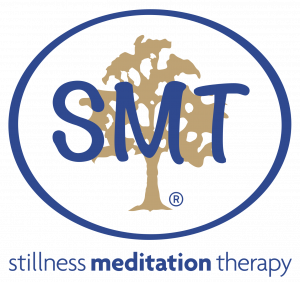Stillness Meditation helps you really love your life!
‘All work and no play makes Jack a dull boy,
All play and work makes Jack a mere toy’
With R U OK in mind this month, let’s get some energy and balance in life. The old proverb gives us a hint that it’s not a bad idea to do just that, yet sometimes it’s a bit tricky to get the balance just right. We all must work in one way or another and while we all need play for recreation and refreshment, we can’t rely on play for life satisfaction. However (and unfortunately for many), our desire for ambition and independence, our easy access to international travel and all that entails and our ready access to technology of many kinds can mean that work can become far too constant – and over-cluttered.
That’s when burnout begins to make its presence felt. This is when finding the time and energy for play becomes challenging. Play becomes difficult to organise, seems to be interrupting more important matters, and fatigue destroys what once would have been an enjoyable and relaxing event. This is when other unwanted feelings begin to dominate the day. Frustration becomes a regular companion. Struggling against a kind of entrapment or helplessness underpinning the work ethic and drive for success, tension increases. The mind is racing and the faster heartbeat and shallow breathing recurs too often. “Work is great, I love my job” is the inner cry – while chaos abounds and the exhaustion of wakeful nights produces with daylight, a sense of overwhelming panic.
This is overdrive, this is stress – this is burnout – a state of existence where its victim is running on adrenalin all week and collapsing in shreds at the weekend to curl up for two days under the doona. How much better to have balance, to be relaxed in work and play and keen to seek fresh air, sunshine, exercise, the fun and company of family and or a simple meal and a glass of wine with friends.
Burdened by headaches, recurring colds and ‘flu, chronic illness, the expression of latent anger and high tension levels, now comes a conflict between love of work and fear of work. We see this from the dark suit corporate world right down to new mothers learning to juggle and adjust to an unfamiliar role. People want to succeed, to get things right, to be in control. But those aims are difficult to accomplish if we’re operating along the lines of the Duracell Battery.
So, are you loving your job and balancing it all with ease or slowly collapsing under its weight? If your reply is that of the latter, then you are in the clutches of a stress response and burnout is likely to be the reason.
At this Centre we abide by the theory and the words of eminent psychiatrist Ainslie Meares who defined stress as the difference between what is happening in our life and how we are handling it. Those words of wisdom apply to the effect of any ‘stressor’ that may enter one’s life. Burnout is supposed to be work-specific. However, anyone can experience burnout if we’re not taking care of ourselves. I say this with conviction due to my personal experience which coincided with my experiencing a major panic attack. I wasn’t in the corporate world of today, but I was hard working, inclined towards perfectionist ideals, ambitious in my desire to perform well in anything I attempted, newly married, a new mother, very short of sleep, unaware of the need for rest and facing the reality and grief of a series of losses and readjustment to life. Whew! I was stressed and ‘burned out’ and life was very difficult until I learned and developed the natural way back to balance.
So … R U OK? How will you know? When we want to bring life back into life again, sometimes it’s in simplicity that we discover the greatest power … and so we remain passionate about Stillness as the premier meditation.
Our work and our passion means helping lots of others truly love their life!
Pauline McKinnon (c)
Director
Melbourne, September 2018



